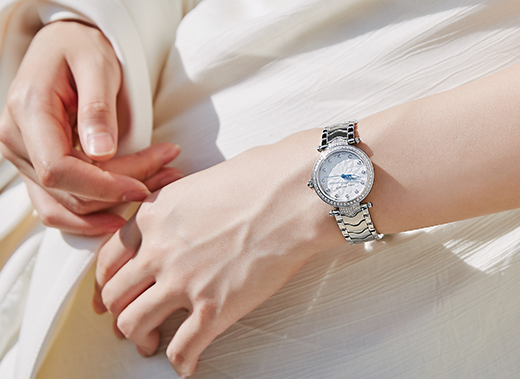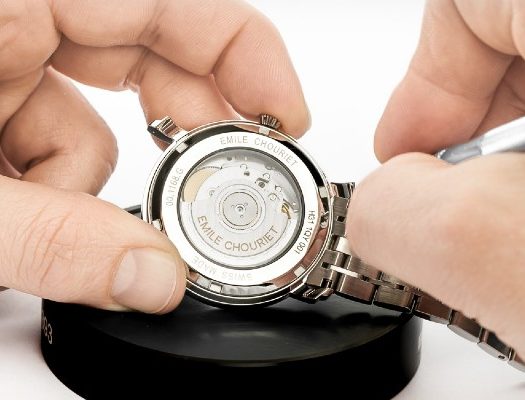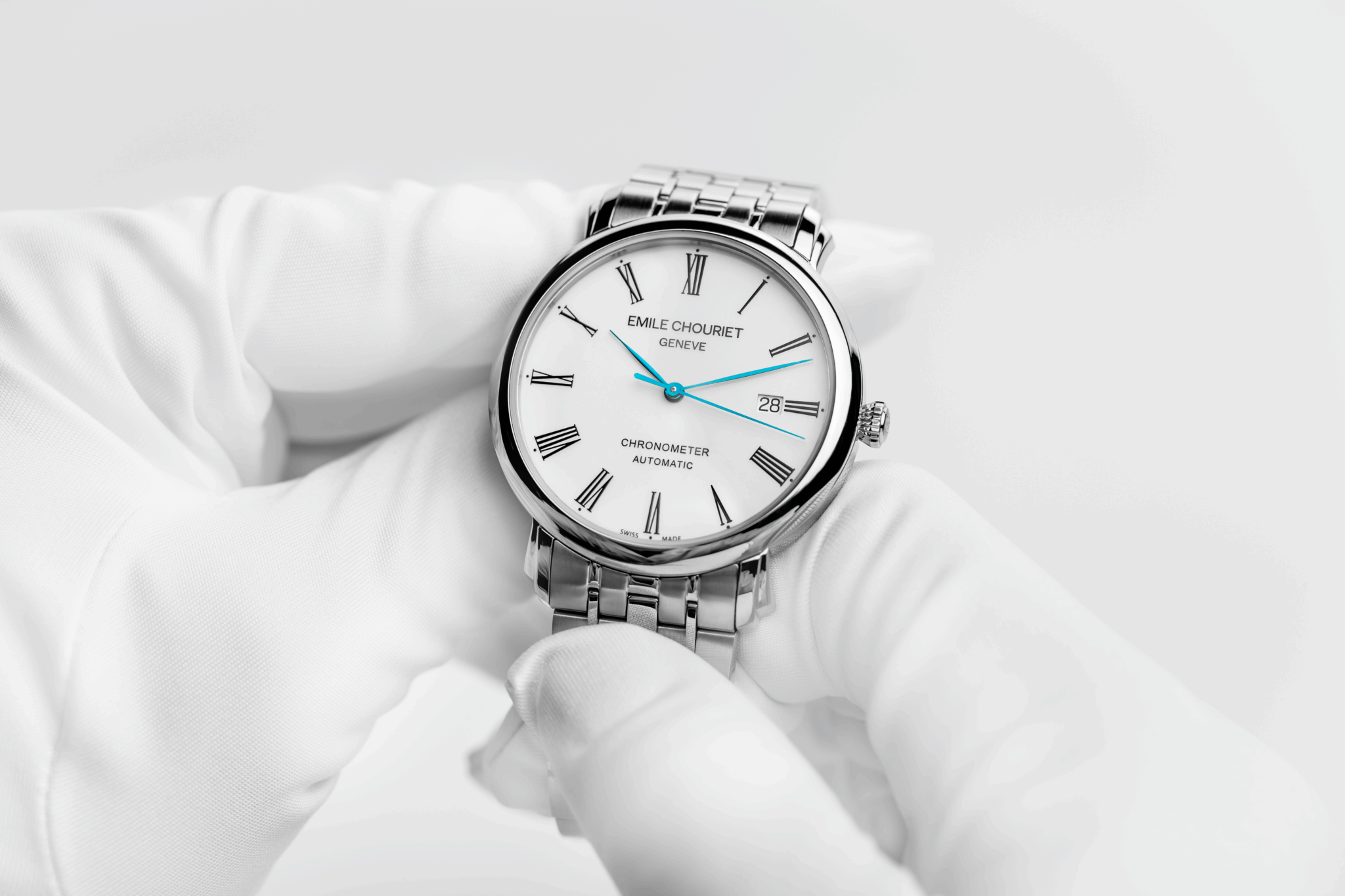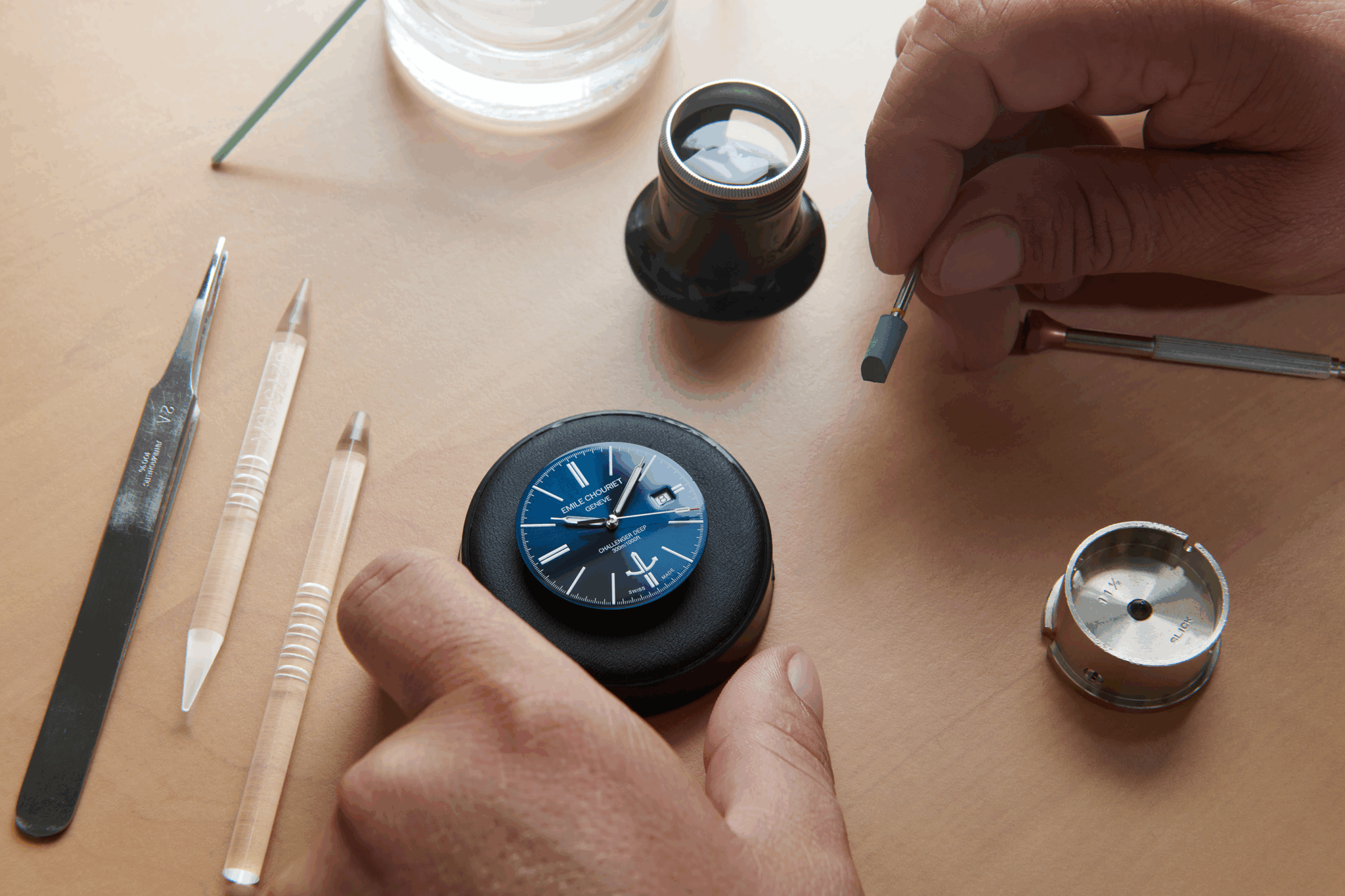Beware of variations in temperature
Movements do not tolerate extreme temperatures well. Avoid exposing your watch to excessive heat sources (prolonged direct sunlight, closed cars in summer) or to very low temperatures for a long time. This can damage the battery of quartz watches or the oil and grease of mechanical watches.
Avoid shocks and vibrations
The inner mechanism and casing are sensitive. Therefore, avoid wearing your watch during activities that cause vibrations or shocks to your hand – for example, mountain biking or certain manual tasks.
Regular water resistance testing
Have your watch’s water resistance checked every two to three years, as the gaskets can wear naturally over time, even if your watch is not exposed to water very often.









